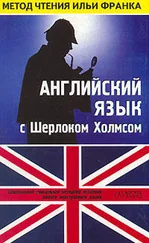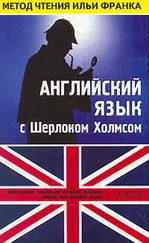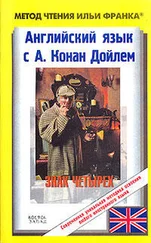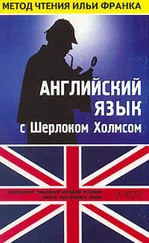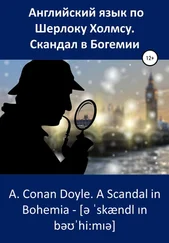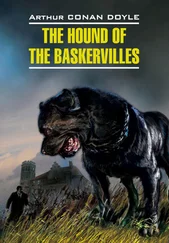"Halloa!" I cried. "What is that (эй, — закричал я, — что это) ?"
A long, low moan, indescribably sad (протяжный, низкий стон, неописуемо тоскливый) , swept over the moor (разнесся над болотами; to sweep — подметать; мчаться, нестись) . It filled the whole air (им наполнился воздух; whole — весь) , and yet it was impossible to say whence it came (и все же невозможно было определить: «сказать», откуда он шел) . From a dull murmur it swelled into a deep roar (из неясного ропота он усилился до глухого рева; to swell — опухать; нарастать /о звуке/; deep — глубокий; низкий, глухой /о звуке/) , and then sank back into a melancholy, throbbing murmur once again (а затем снова перешел в скорбное беспокойное бормотание; to sink — тонуть; ослабевать) . Stapleton looked at me with a curious expression in his face (Стэплтон как-то странно: «со странным выражением на лице» взглянул на меня; curious — любопытный; странный, чудной) .
head [hed], murmur ['m@:m@], roar [rO:]
He looked at me with a surprised face.
"For God's sake put such an idea out of your mind," said he. "Your blood would be upon my head. I assure you that there would not be the least chance of your coming back alive. It is only by remembering certain complex landmarks that I am able to do it."
"Halloa!" I cried. "What is that?"
A long, low moan, indescribably sad, swept over the moor. It filled the whole air, and yet it was impossible to say whence it came. From a dull murmur it swelled into a deep roar, and then sank back into a melancholy, throbbing murmur once again. Stapleton looked at me with a curious expression in his face.
"Queer place, the moor (странное место, эти болота) !" said he.
"But what is it (но что это такое) ?"
"The peasants say it is the Hound of the Baskervilles calling for its prey (местные жители говорят, что так собака Баскервилей зовет свою жертву; peasant — крестьянин; сельский житель) . I've heard it once or twice before (я слышал это и раньше раз или два) , but never quite so loud (но так громко — никогда) ."
I looked round, with a chill of fear in my heart (я оглядел с замирающим от страха сердцем; chill — холод; гнетущее чувство) , at the huge swelling plain (огромную величественную равнину) , mottled with the green patches of rushes (покрытую зелеными участками камыша) . Nothing stirred over the vast expanse (ничто не шевелилось = никакого движения не было на этом безбрежном просторе) save a pair of ravens, which croaked loudly from a tor behind us (кроме пары воронов, громко каркающих с вершины скалы позади нас) .
"You are an educated man (вы /же/ образованный человек) . You don't believe such nonsense as that (вы /же/ не верите в подобный вздор) ?" said I. "What do you think is the cause of so strange a sound (что вы думаете о причине такого странного звука) ?"
"Bogs make queer noises sometimes (болота иногда издают необычный шум) . It's the mud settling, or the water rising, or something (это либо ил опускается, либо вода поднимается, либо еще что; to settle — устраивать/ся/; усаживать/ся/; оседать, опускаться) ."
"No, no, that was a living voice (нет-нет, это был голос живого /существа/) ."
"Well, perhaps it was (ну, возможно и так) . Did you ever hear a bittern booming (вы когда-нибудь слышали, как кричит выпь; bittern — выпь; to boom — гул; крик выпи) ?"
"No, I never did (нет, никогда /не слыхал/) ."
"It's a very rare bird — practically extinct — in England now (в Англии это очень редкая птица, практически вымершая) , but all things are possible upon the moor (но на этих болотах все возможно; thing — вещь; нечто, что-то) . Yes, I should not be surprised to learn (да, я бы не удивился, /если б/ узнал) that what we have heard is the cry of the last of the bitterns (что то, что мы услышали, было криком последней выпи) ."
"It's the weirdest, strangest thing (это — самый жуткий и странный звук) that ever I heard in my life (какой я когда-либо слышал за свою жизнь) ."
"Yes, it's rather an uncanny place altogether (да, в общем это довольно жуткое место) . Look at the hill-side yonder (посмотрите вон туда, на склон холма; hillside — склон горы, косогор; yonder — вон там; в ту сторону, туда) . What do you make of those (что вы об этом думаете) ?"
queer [kwI@], educated [,edju:'keItId], bird [b@:d]
"Queer place, the moor!" said he.
"But what is it?"
"The peasants say it is the Hound of the Baskervilles calling for its prey. I've heard it once or twice before, but never quite so loud."
I looked round, with a chill of fear in my heart, at the huge swelling plain, mottled with the green patches of rushes. Nothing stirred over the vast expanse save a pair of ravens, which croaked loudly from a tor behind us.
"You are an educated man. You don't believe such nonsense as that?" said I. "What do you think is the cause of so strange a sound?"
"Bogs make queer noises sometimes. It's the mud settling, or the water rising, or something."
"No, no, that was a living voice."
"Well, perhaps it was. Did you ever hear a bittern booming?"
"No, I never did."
"It's a very rare bird — practically extinct — in England now, but all things are possible upon the moor. Yes, I should not be surprised to learn that what we have heard is the cry of the last of the bitterns."
"It's the weirdest, strangest thing that ever I heard in my life."
"Yes, it's rather an uncanny place altogether. Look at the hill-side yonder. What do you make of those?"
The whole steep slope was covered with grey circular rings of stone (весь крутой склон был покрыт серыми кольцами из камня; circular — круглый) , a score of them at least (/штук/ двадцать, по крайней мере) .
"What are they? Sheep-pens (что это, загоны для овец) ?"
"No, they are the homes of our worthy ancestors (нет, это дома наших почтенных предков; worthy — достойный, почтенный) . Prehistoric man lived thickly on the moor (доисторический человек густо селился на этих болотах) , and as no one in particular has lived there since (и так как практически никто с тех пор здесь не жил) , we find all his little arrangements (мы находим все его нехитрые приспособления; little — маленький; незначительный; arrangement — приведение в порядок; приспособление) exactly as he left them (в точности /такими/, как он их оставил) . These are his wigwams with the roofs off (это — их дома, /только/ без крыш; wigwam — вигвам; дом, жилище /шутл./) . You can even see his hearth and his couch (можно даже увидеть его "камин" и "диван") if you have the curiosity to go inside (если вы полюбопытствуете войти внутрь) ."
Читать дальше


